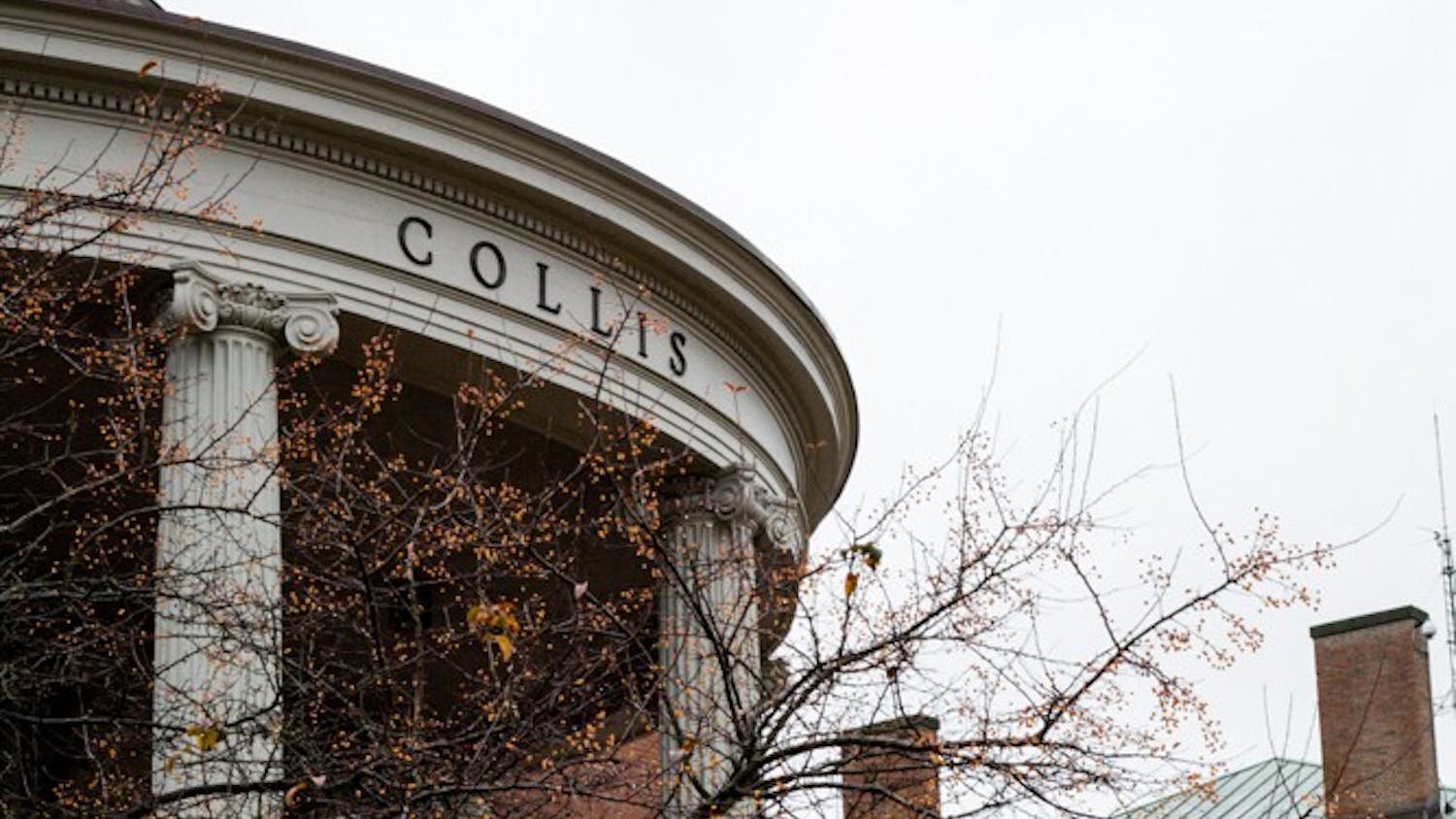Every week during the summer, students head to the Dartmouth Organic Farm, to local rivers, into the sun and out under the stars to complete homework assignments and class labs. Professors have expanded their classrooms, allowing students to earn credit exploring the Upper Valley and literally enjoying the fruits of the season.
The Dartmouth Organic Farm is the focus of activity for Environmental Studies 25 and 39. Professor Jack Shepherd's class, ENVS 39, learns about small-holder farming operations, preparing the department's Foreign Study Program students for their experience in South Africa this Fall.
The students monitor a crop's growth on a small plot of land at the Farm, watering, manuring and plowing with authentic Zimbabwe field hoes. Every Thursday at 6:30 a.m. the students harvest at the Farm until noon when they sell their products outside Collis.
Professor Shepherd expands his classroom informally by encouraging students to get "out and around the Upper Valley -- to the farms, farm stands, the Norwich Fair, or just into the communities -- to make [students] aware of and engage the wider New England communities."
Environmental Studies 25, Ecological Agriculture, meets every Tuesday at the Farm. They have also visited Vaughn Farm, a dairy farm and Long Wind, an organic glasshouse tomato production facility, both in Thetford, VT.
Students are assigned to visit a farmer's market, such as the one in Norwich, in order "to understand the local agriculture economy" says Professor Ross Virginia.
Virginia believes that the student-created and student-run Farm is "an ideal natural laboratory to learn about principles of ecology and sustainability" and "the perfect place to teach and enjoy on a summer day."
Charlie White '02, who took Virginia's class his sophomore summer, discussed with the class his five-month project of eating only locally-produced food. He knows the Farm well and says that "the fact that most of the growing season is during the summer term makes the summer a particularly valuable time to learn about farming."
Jenn Miller '04 says that by working on the farm students in her class have realized they are "not disconnected from the land."
Environmental Chemistry students have visited many local bodies of water, including Storr's Pond, Sigma Phi Epsilon fraternity's pool and spots along the Connecticut River. The class directs students "into the field", says Professor Jeffrey Schneider, to obtain their own environmental samples which they then test for pollutants.
"Seeing first-hand the effects of pollution on the environment makes environmental problems more apparent" observed D. Bradley Bate '04.
For their first lab, Astronomy 1 students ascended Freshman Hill in the dark and set up their own telescopes to sketch the moon, measure the size of its craters and observe Venus. By the end of the term, all 150 students will have woken up at 4 a.m. to catch a glimpse of Saturn in the morning sky.
Professor Eliot Young said that his students "see stuff with [their] own eyes that most people never see" and of course, it's "more fun during the summer when it's warm."
Several classes are also taking advantage of the summer weather. It has allowed Niegel Smith '02 to build his sculpture, an exploration of ritual and space, on the lawn outside the sculpture studio, and Virginia Beahan, Professor of Photography commented that "Summer is great for photographing--long days and beautiful light."
Professor Young reminds his students that sun spots can be observed by the public on Observatory Hill every Saturday from 12-2 p.m. if it's not cloudy.
Professor Shepherd also shares ways to take advantage of the Upper Valley with his students every week. This week he suggested a visit to the Farmer's Market on Saturday morning in Norwich, and blueberry picking at the Noda Farm in Meriden, N.H.Shepherd quoted Henry Adams from "The Education of Henry Adams": "New England in the summer is intoxicating."



